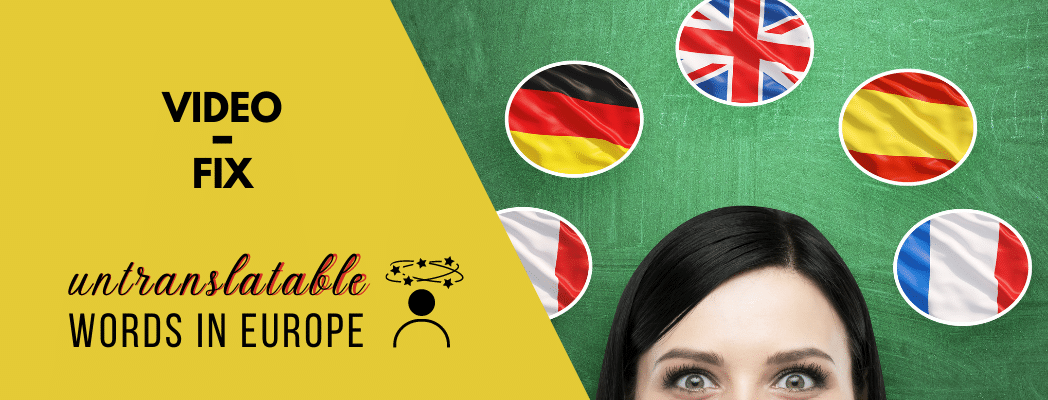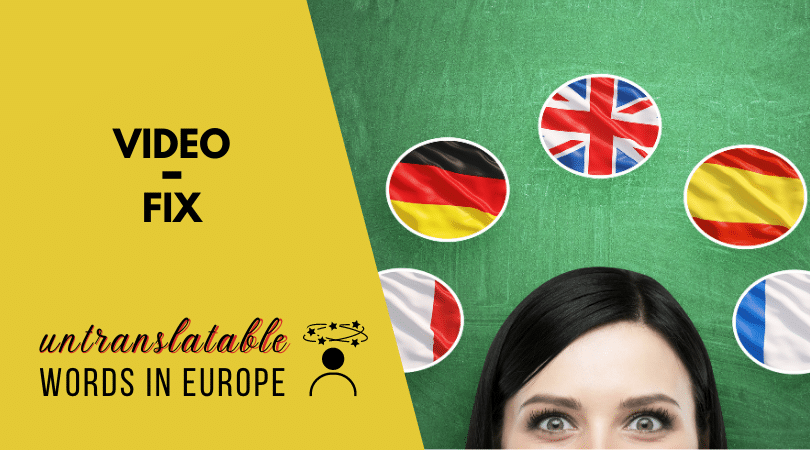
For this week’s Video-Fix we have a special trip for you: an evergreen Untranslatable Words Tour across Europe, accompanied by some of the words that have no equal translation in any language.
This will take us to Norway, Denmark, Italy, Spain, Germany, Portugal, Sweden, and Turkey, to find out and learn some of the most common “lost in translation” episodes that translators often come in contact with.
In fact, each language has its own linguistic and cultural references, rich with semantic complexities that may derive from the culture and habits of each different area. Language is shaped in a different way in each region; it can be influenced by climate, geographical territory, history, etc. All elements that in the end, are reflected in the people’s vocabulary and sentence construction. This is why the relationship between words and their meaning is so complex and fascinating: in some languages there are ideas and feelings that can be summed up into a single word, and yet there are many feelings and ideas that cannot be encapsulated in such way. In some cases, languages are simply not able to capture the essence of the meaning of a word in another language: in this case, we encounter what’s defined as ‘untranslatable’.
Some might argue that a better definition would be “words which have no direct equivalent in other languages”: in fact, it is indeed possible to translate these words into English, just by using more than one word.
What is your opinion on this? Do you have a direct translation for any of these words in your language? Take a look at this Video-Fix, and let us know!
Sources
- Jason Oxenham, 20 of the World’s Most Beautiful Untranslatable Words, available here (consulted on February 6th, 2018)
- John-Erik Jordan, Untranslatable Words From Around The World, available here (consulted on February 6th, 2018)
- NPR, An Interview with Anthropologist Wade Davis, available here (consulted on February 6th, 2018)
Written by Carolina Quaranta – Former Schuman Trainee at the Terminology Coordination Unit of the European Parliament. Completed a Master in Public and Political Communication in the University of Torino, Italy; communication specialist and journalist.

